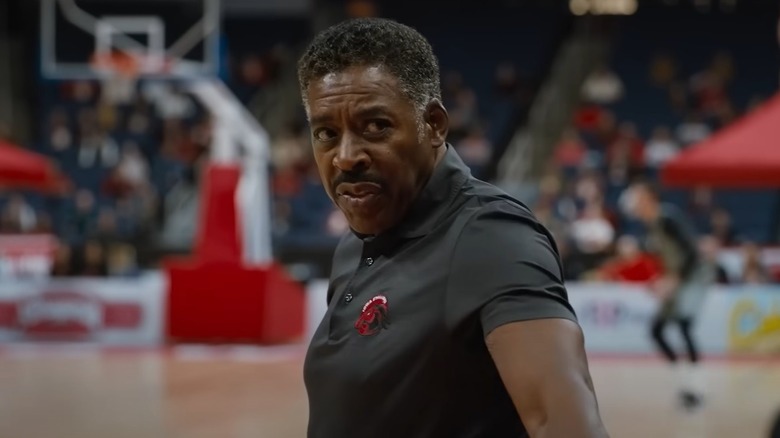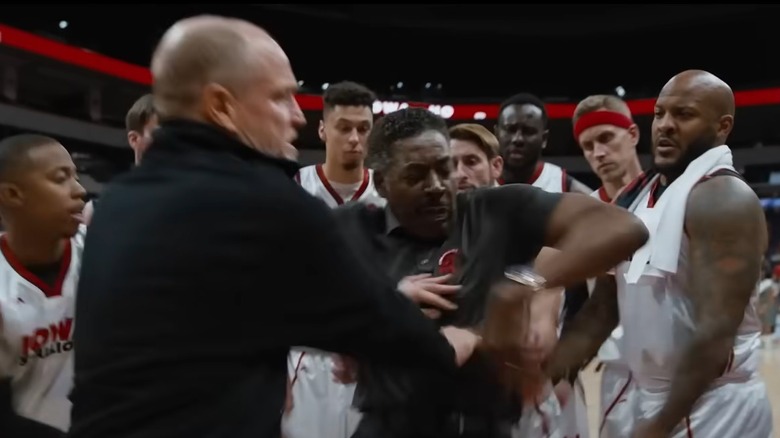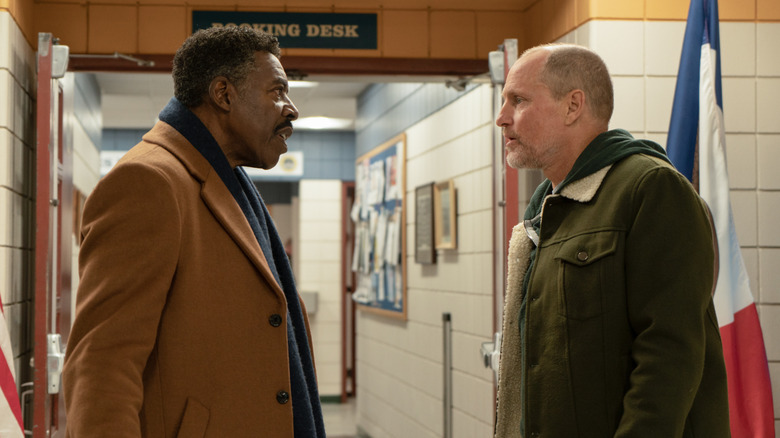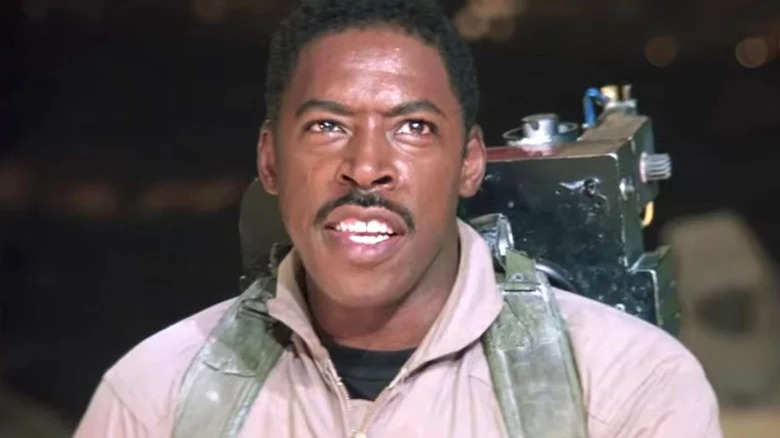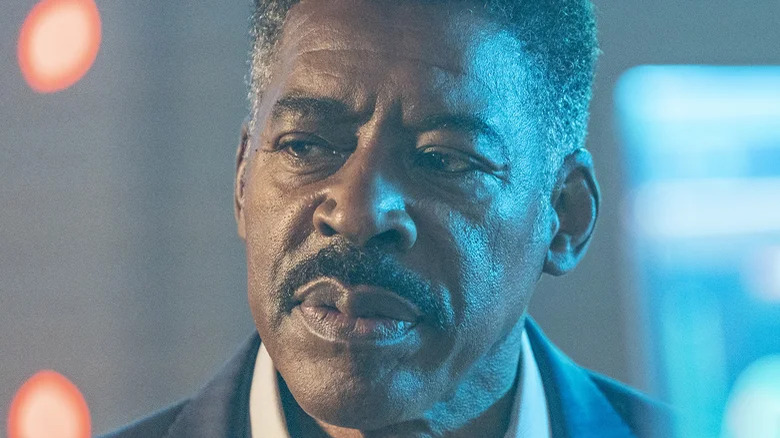Ernie Hudson On Quantum Leaping, Ghostbusting, And Working With Woody Harrelson In Champions - Exclusive Interview
In "Champions," a new heartwarming comedy from Bobby Farrelly, Marcus (Woody Harrelson) is a talented minor-league basketball coach under Coach Phil Peretti (Ernie Hudson), and one in need of a serious attitude adjustment. After publicly shoving Coach Peretti and proceeding to make some terrible drunken decisions, Marcus is court-ordered to coach the Friends, a team of disabled basketballers with potential and Special Olympics dreams. Through the experience, as one might hope in a family-friendly comedy, Marcus becomes a better person.
Ernie Hudson has long been a prolific feature of the best of the sci-fi and comedy landscape. Beyond being a key member of the original "Ghostbusters" and returning for "Ghostbusters: Afterlife," he has also joined the "Quantum Leap" reboot as the pivotal returning character Herbert "Magic" Williams. In an exclusive interview, Looper spoke with Hudson about his role in "Champions," where he discussed Marcus' journey and working with Harrelson and the talented young actors playing the Friends. He also dug into the next "Ghostbusters" script, Season 2 of "Quantum Leap," and more.
What Marcus has to learn in Champions
You were great in "Champions," and I'm so interested in the relationship between Coach Peretti and Marcus. It's kind of a mentorship, even though Marcus would try hard not to see it that way. What does Marcus need to learn from Coach Peretti?
[Marcus] doesn't seem to understand that, [about] friendships, there's a cost ... He's been looked out for ... They're contemporaries — they had gone to college together — but he doesn't seem to understand that his actions [have] consequences that not only affect him but everybody, the team and everybody else. He doesn't seem to get that. [He has] that sense of independent spirit, but there's some things that you need to put on hold.
I don't think he gets that, "We're all sacrificing so that you can be here and you're a part of that," which comes down to the team. It's not until he coaches his team that he gets that sense of community, that sense of, "What I do, everybody has to pay the price for. There are consequences."
Absolutely. Now, this isn't your first time working with Woody Harrelson — you were in "The Cowboy Way" together. How does your collaboration in "Champions" differ from your prior film?
It was 25 or so years ago when we did ["The Cowboy Way"] and we were both much younger, but Woody is one of those genuine, down-to-earth people. He hasn't changed at all. He always brings his best, but he always comes in such a natural way that I've never seen him working hard at it. There's a genuine sweetness about him.
[The difference is] being older, and maybe both being at a certain place. We've both grown up a little bit. But the work, the way he approaches it — I love the way he connects with ... especially the kids who were on the team. A lot of these were new people who hadn't acted before, and he knows how to do that, and not all actors do. It was really impressive to me.
Woody Harrelson's openness helped on the Champions set
I know most of the Friends performers weren't experienced actors, but they were great. What was working with them on set like for Woody [Harrelson] and everyone?
Bobby Farrelly genuinely has that sense of inclusiveness. But Woody especially didn't come at them like, "I'm an actor" or "I'm older" ... There are times where we weren't shooting. He'd play basketball, or you'd see him being a part of that. A lot of actors can come in and do what they do, but when the scene is over, they go off. Woody was right there. He showed up.
A lot of them had seen some of the other work, "Ghostbusters" or whatever. They were great. They were really eager ... I recognize they're very good at what they do, but Woody had a way of getting them to be present and not worry so much about what they had done or hadn't done, and I attribute a lot of that to him. [He let] them feel that they were certainly on his level and that they can express themselves and have a good time doing it. He's very good at that.
He always has such an open energy, and it comes across in the film. Once the character opens up, it really shines.
It is a tribute to him in some ways. I was telling him [that] he reminded me of Bill Murray in a lot of ways, but Billy [is] not as innocent. There's an openness to [Woody]. He's funny — they're both very funny — but Woody has an innocence, and it allows you the freedom to do what you do, and you're not always having to compare yourself. That was important in this film because these kids were very, very talented, but I'm sure they had been told by whoever about limitations. Woody had a way of letting them know that "This is going to work, because you're here, and you're showing up."
Making sure Winston gets his due in the Ghostbusters' future
It was also nice to see you return for "Ghostbusters: Afterlife." What was it like to return, and is there anything you can tell us at this point about the greenlit sequel?
Well, probably not a lot I can tell you other than I think everybody's coming back, which I'm excited about. Jason Reitman, who is producing this one, from the very beginning when he got involved ... There's been a lot of things out recently about me not being happy about certain treatments or whatever. But Jason made sure — and in fact, we talked about it — that Winston would be very much included, and very much part of the franchise and appreciated for what he brings to it. Everybody's back. It's a great script and a lot of fun.
You also have such a great interpretation of Herbert "Magic" Williams in the "Quantum Leap" reboot. What was the best part of stepping into the revival? Are there any elements of the original series that you hope return in Season 2?
I'm so happy we got picked up for Season 2. It's one of the most fun shows that I've done. I love this cast, not just because there are a lot of talented people, but [because] people are showing up and bringing their best. Raymond Lee has a sort of universality about him. He's very, very special, but the whole cast is.
I had seen the original "Quantum Leap" — some of the episodes, not all of them — with my sons. The idea of time travel, the idea of walking in someone else's shoes, was a great conversation. When this came up and they asked me to be a part of it, [I and] my older boys, especially, were really excited about it.
As we move into Season 2 ... In the first season, we're locked into my character running the program, but we don't get to know a lot about who this guy is. We met him in the original show, but what happened to him? That personal aspect comes into play, and the relationships — we focus on that. [In] the first season, we spent a lot of time on the leaps, which is what the original show was mostly about, but as things complicate, we begin to unravel and see these people. That's exciting.
Connecting with the Quantum Leap cast
I interviewed Raymond Lee early in Season 1 — so talented. What's he like as a collaborator behind the scenes?
When I first met him ... I've done a lot of series [that] didn't last very long, but I've done my share of pilots and working with different casts and crews. I was struck with how down-to-earth he is. It starts from that whole call sheet, number one, two, three, where you are on the sheet. He's number one, and so many times when that person is insecure or not comfortable, it goes down the line. But he's so open, and it allows all the other actors — and the crew and everybody else — [to] relax and be themselves as well.
I am struck with how secure he is, and he is there to do the work and do a great job, and he will go out of his way to make sure that everyone is included. I always try to do that as well, but I'm not there every single day, and he's pretty much there every day. We're silly and fun. I spend more time with this cast than maybe any other — we've gone to movies together. Mason [Alexander Park] — they do a lot of live theater. They perform; we've gone to see them perform. But we've had a chance to connect as a group, and that comes through in the show. A large part of that is because Raymond leads the way and is always there. He is always a part of that.
If you had a blank script for "Quantum Leap" Season 2 and you could write any situation and it would be entirely your discretion, what would it be?
This is off the top of my head because I haven't been asked this before, but there's that hold of the '50s, at the beginning of the whole civil rights movement, the Montgomery boycott, and what a lot of people were experiencing living there in the South at the very beginning. I would like to see from that perspective what some people had to live through and make peace with. As frightening as change was — and a lot of people were very resistant; I know in my family they were ... but [they were] getting through that place.
I've seen movies deal with that, but it's usually from [another] perspective. In the middle of all the things we go through, we still find ways to fall in love, and laugh, and live, and do all of that. We look back and see the danger or the wrong. But I would love to see [that] from an African American perspective and live through that situation, experience that from that perspective.
"Champions" hits theaters on March 10, 2023.
This interview has been edited for clarity.
